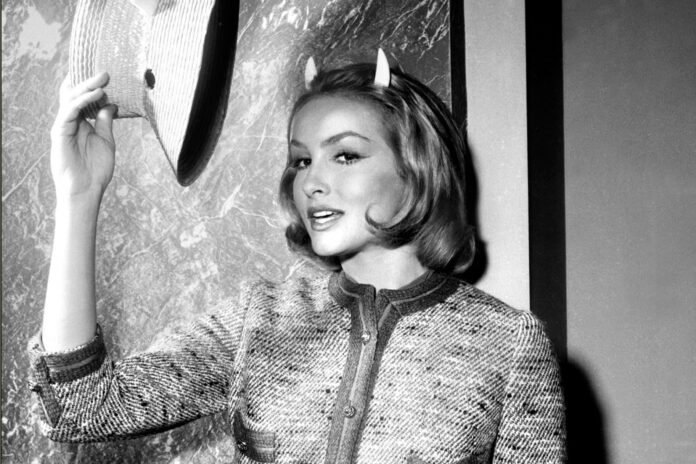[ad_1]
If there’s one thing the original Twilight Zone loved to do, it was making deals with the devil.
Throughout its five-season run between 1959 and 1964, Rod Serling‘s classic anthology series — episodes of which air regularly on SYFY — featured numerous encounters with Satan himself. The most notable examples, of course, are “Escape Clause” (Season 1), “The Howling Man” (Season 2), “Printer’s Devil” (Season 4), and “Of Late I Think of Cliffordville” (Season 4).
While each one played on the well-worn narrative trope of the Faustian bargain (aka the trading of one’s soul, or a similarly prized object, for a fabulous reward with terribly ironic consequences), it was the hour-long “Cliffordville” that made the best use of Beelzebub. It’s also the only instance where the show cast a woman to play the character, which, as we’ll argue below, only served to underscore Serling’s unparalleled talent for wringing fierce social commentary out of seemingly innocuous genre storytelling.
Why Julie Newmar played The Twilight Zone‘s best Satan
Adapted by Serling from the short story “Blind Alley” by Malcolm Jameson, “Of Late I Think of Cliffordville” stars Albert Salmi (in his third and final Twilight Zone appearance) as William Feathersmith, a ruthless business tycoon in his 70s, who has grown bored with the staggering wealth and power he amassed over the course of half a century. After decades of clawing his way to the top, he finally realizes that the whole sadistic journey — the people he stepped on, the lives he ruined — was the most pleasurable thing of all. He’d give anything to relive the glory days, and who better to grant the deepest desire of an unscrupulous double dealer than the most notorious double dealer of them all?
Played by soon-to-be Catwoman Julie Newmar, the episode’s version of Satan is depicted as a breathy and horned femme fatale operating the aptly-named “Devlin’s Travel Service” on the 13th floor of Feathersmith’s office building. Given the fact that he lost the exclusive rights to his immortal soul years ago due to highly amoral business practices, the aged magnate is offered a monetary transaction instead. For the bulk of his multi-million dollar fortune, he’ll be sent back in time to his hometown of Cliffordville, Indiana and given the chance to start all over again. Feathersmith jumps at the deal, foolishly underestimating the beguiling trickster dangling it in front of him.
On the surface, the decision to make the Devil an attractive woman in this context seems to highlight the forbidden attractiveness of the offer itself (one might even draw a parallel to Eve encouraging Adam to partake from the Tree of Knowledge in the Garden of Eden). Upon further analysis, however, the inspired casting choice feels like Serling was making a critique of American chauvinism in the 1950s and ’60s.
Feathersmith is very much a member of the old school patriarchy, only employing female typists in his outer office and regarding members of the opposite sex as prizes to be won. In his mind, a woman could never get the better of him because they’re not in the same league — mentally or professionally. This archaic mindset ends up being his undoing when he fails to detect the menace lurking behind the seductive beauty (Newmar perfectly nails the role of mercurial temptress) and rushes into an arrangement without considering all the contractual loopholes that could be exploited against him.
When his little trip to the past inevitably turns sour (with both his body and knowledge of the future going bust), Feathersmith finds himself at the mercy of Devlin, begging her to return him to the present. She obliges, but not before giving him a well-deserved dressing down, calling out his many shortcomings that have always made him a worthless parasite of a man with no real worth to society. Once he’s thoroughly emasculated, Feathersmith is returned to modern day, albeit with no dignity and no riches.
Classic episodes of The Twilight Zone air regularly on SYFY. Click here for complete scheduling info!
[ad_2]
Source link








